
Today is May 1st, International Workers' Day, which centers on solidarity between workers and the struggle for better working conditions. 137 years after the Haymarket riots in Chicago, for which the holiday was founded, labor leaders around the world continue to fight for workplace rights, democracy and human rights.
Britain
Mick Lynch: A working class man
Mick Lynch, the general secretary of the Rail, Maritime and Transport (RMT) workers' union in Great Britain, which unionizes over 80,000 workers, has transformed from a labor leader to a media star in the past year. As the leader of the largest workers' union in the British rail network, Lynch stands at the center of one of the most prominent struggles in the wave of labor disputes that has plagued Britain in the past year.
In a number of witty appearances on media channels in Britain, known for their hostile attitude towards labor unions, Lynch has gained a following thanks to his sarcastic, if not indifferent, answers to the presenters' questions. Lynch did not spare any criticism for the ruling government under the authority of the Conservative Party, to the opposition Labor Party, to the railway companies and to the news presenters themselves. It’s not for nothing that instead of coming themselves, various transport ministers sent their deputies to confront Lynch in the media.
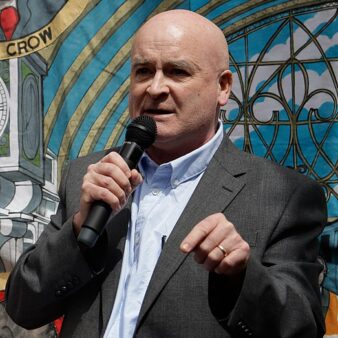
In one case, Richard Madeley, the presenter of the popular program Good Morning Britain, was shocked by an answer he received from Lynch: "Richie, you really make up extraordinary nonsense sometimes." The answer came after a slight chuckle from Madeley’s question: "Are you a Marxist who wants to destroy capitalism?" Later in the interview, Lynch answered seriously: "No, I'm not a Marxist, I'm an elected representative of the RMT organization. I'm a working-class man who leads a labor dispute over jobs, wages, and working conditions. It's not related to Marxism, but rather a labor dispute."
In another interview gone viral, Lynch was dumbfounded by the questions of Sky News presenter Kay Burley, telling her "Your questions border on nonsense." Burley asked Lynch what would happen if the government brought workers to cross his picket line and break the railway workers’ strike, hinting at possible violence by the strikers.
During the interview, Lynch was filmed against the background of the strike line at Houston station in London, where a number of railway workers were seen standing peacefully with signs and flags. In response to the question, he grinned, turned his gaze back and said: "Well, look, there it is, and that's what it's all about," implicitly mocking the absurdity of the presenter's claim.
The United States
Sara Ziff: Advocating for fashion industry workers
Sarah Ziff is a model working in New York City and the founder and CEO of the Model Alliance, an organization working to uphold the rights of workers in the fashion industry, which employs approximately 180,000 workers in New York City alone. As part of her work in the organization, she was a partner in the passing of the 2013 Child Model Act, which applies rules to protect minor models, worked to prevent the epidemic of sexual violence in the industry, and to help the victims.
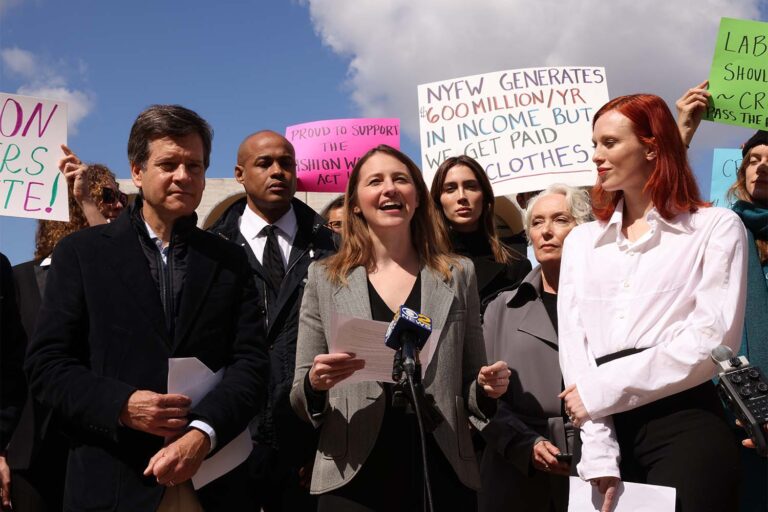
Ziff herself filed a lawsuit in April against Fabrizio Lombardo, an executive in the film and television industry and close friend and former partner of Harvey Weinstein, for raping her in 2001 when she was 19 years old.
According to the lawsuit, Ziff's agents arranged for her to meet with Lombardo regarding the possibility of her developing an acting career. Lombardo invited her to a screening of a film by Miramax where he served as senior director. After the screening, he invited her to spend time at the bar in his hotel together with Harvey Weinstein, then one of the most powerful figures in Hollywood. But instead of a bar, Lombardo took her to his suite where he raped her.
"It took me over twenty years to process it," said Ziff in an interview with the New York Times prior to filing the lawsuit, "I couldn't even talk about it in the first years and certainly not take legal action."
Alongside the lawsuit, Ziff has continued her activity in the Model Alliance. For the past year, she, together with New York State Senator Brad Holliman, has been leading the campaign to pass a law which will guarantee basic workers' rights in the fashion industry.
The law includes seemingly trivial requirements such as contracts in clear language that explicitly specify the terms of wages and scope of work, and payment up to 45 days after the end of the work. The industry encompasses about 180,000 workers in New York City, making up 6% of the city’s workforce. New York Fashion Week alone generates $600 million worth of revenue annually.
Brandon Johnson: teacher and organizer, turned mayor
Brandon Johnson is a teacher turned labor unionist. Now, after winning the election in early April, he is the incoming mayor of Chicago, the third largest city in the U.S. His connection to the working class is closely woven into his life story.
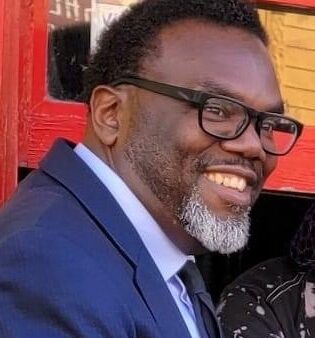
He grew up in a three-broom apartment with his parents and nine siblings. His father worked as a clergyman at the church where Johnson volunteered after graduating high school. Later, he began working as a teacher in Chicago and along the way became a labor organizer in the Chicago Teachers Union.
During his mayoral campaign, Johnson said he was inspired by the leader of the civil rights movement, Martin Luther King, who linked racial discrimination against black people to the severe economic inequality and exploitation in the United States.
Addressing an issue at the center of the election campaign, Chicago’s rising crime rates, Johnson proposed a crime prevention approach through expanding investments in employment, education, and mental health. The financing for Johnson's investments will be obtained through taxation aimed at the upper end of the income and wealth scale – on sales of luxury real estate assets and financial transfers, among other things.
Egypt
Khaled Al-Balshi: Fighting for media independence
Khaled al-Balshi's election to head the Journalists' Syndicate in Egypt last March surprised his supporters as much as it surprised his opponents. Al-Balshi, the editor-in-chief of the opposition website Darb, narrowly defeated Khaled Mari, who was supported by government-controlled newspapers and media channels.
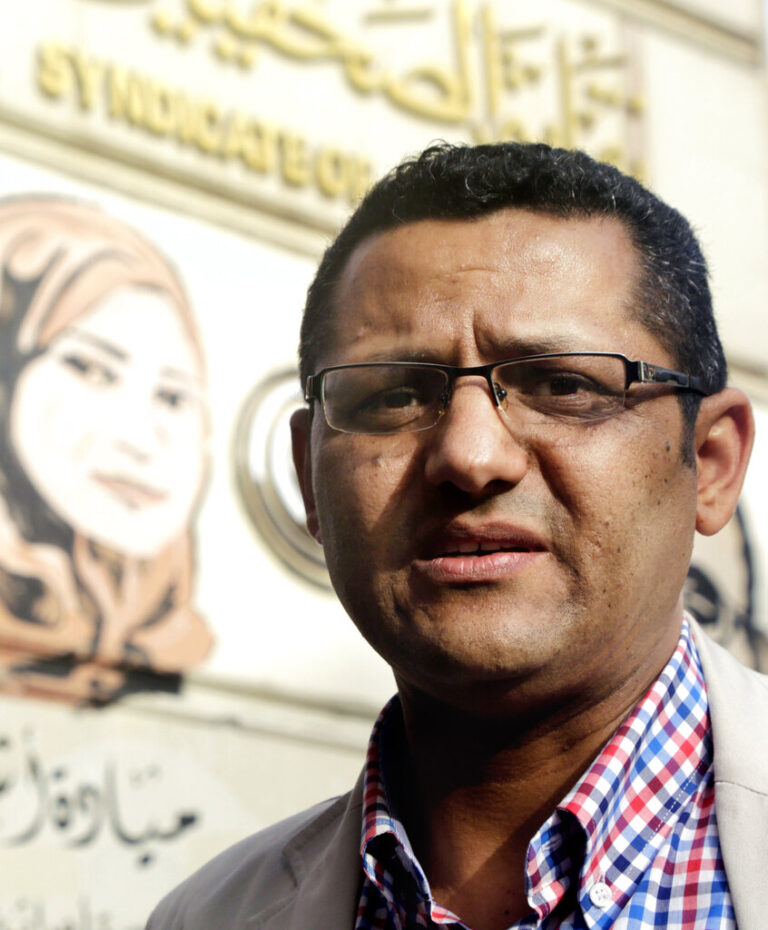
The fight against the Egyptian government's oppressive attitude towards journalists was at the center of Al-Balshi's campaign, who promised to restore the independent voice of the media in the face of government control.
As part of the effort to prevent Al-Balshi from being elected, his rival Mari promised to increase the organization's monthly payment to its members, which comes from the state, to about 600 Egyptian pounds (about $20). The journalists' salaries are about $150 per month, so this is a significant increase.
Al-Balshi also testified in an interview with the London-based news site, Middle East Eye, that the government media prevented their employees from participating in his election conferences.These actions led everyone, including Al-Balshi, to expect the victory of the government's candidate Mari.
"I realized I was going to win only a week before the elections themselves," he said in an interview. "Voters wanted to express their anger regarding the professional and financial conditions."
The repression against al-Balshi and his oppositional positions began long before the election campaign. In September 2020, half a year after the launch of Darb, Al-Balshi's brother, Kamal, was arrested on suspicion of illegal assembly. The brothers claimed that this was an act of reprisal against Khaled and his activity on the site. The site itself was blocked in Egypt in April of that year, a month after its launch.
The government's repressive approach is not exclusive to al-Balshi's Darb. Many journalists in Egypt have been thrown into prison and the United Media Services corporation, known as the government's media arm, has taken over many of the private media sources.
France
Marylise Léon and Sophie Binet: Female leadership in France's largest unions
Workers' Day in France will be celebrated as a sign of female leadership – until a month or so ago, a woman had never led one of the largest workers' unions in the country; Today, women lead the two largest unions, which together encompass over one and a half million members.

At the end of March, the General Confederation of Labor, the second largest union, elected Sophie Binet as its leader. Less than a month later, Laurent Berger, the head of the largest union in the country, the French-Democratic Labor Confederation, announced that he would retire in June and that his deputy, Marylise Léon, would lead the organization in his place.
Binet and Léon take up their positions at a turbulent time when the workers' unions under their leadership are leading the huge protests against French President Emmanuel Macron's move to extend the retirement age. In the absence of a majority, Macron passed the measure in a procedure bypassing the Parliament, which intensified the criticism against him. Following the move and two weeks after her election, Binet announced several protest measures, including huge protests on May Day.
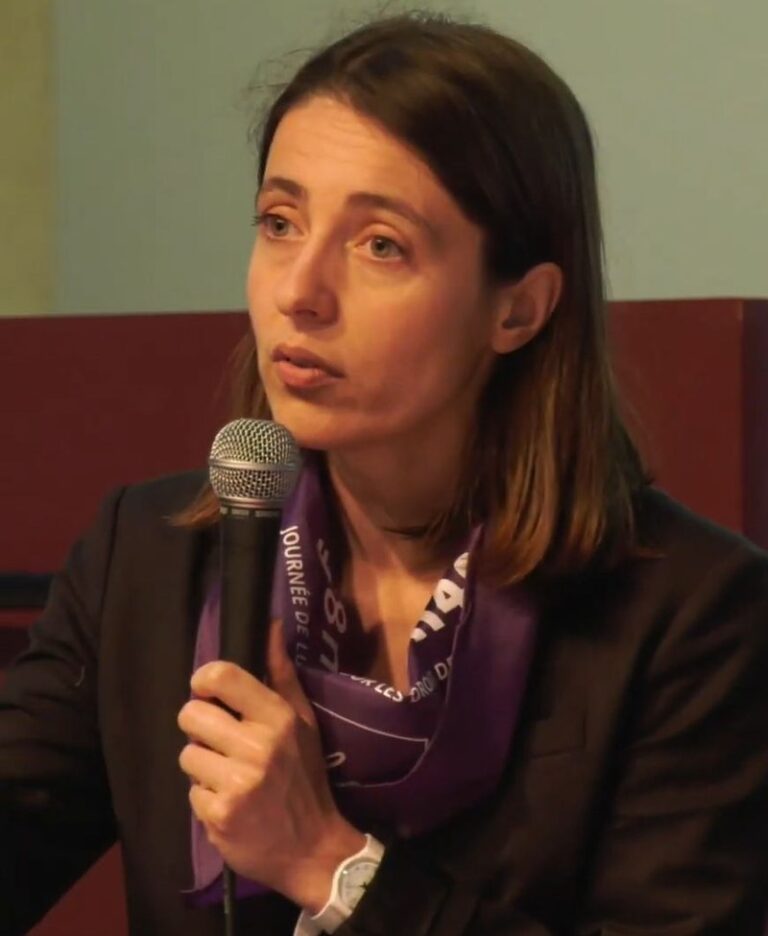
Léon joined the workers' union following the 2001 AZF factory disaster in Toulouse that claimed the lives of 31 workers. She worked to strengthen the rights of workers' representatives in discussions on issues of industrial risks and environmental protection. Along the way, she was active in the Federation of Chemical and Energy Workers, part of the French-Democratic Labor Confederation. In 2018 she was elected Deputy Secretary General.
This article was translated from Hebrew by Lily Sieradzki.






